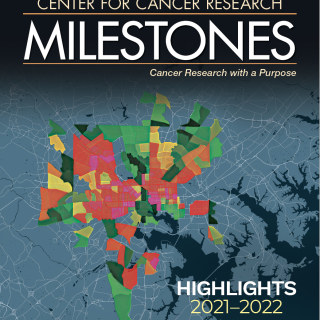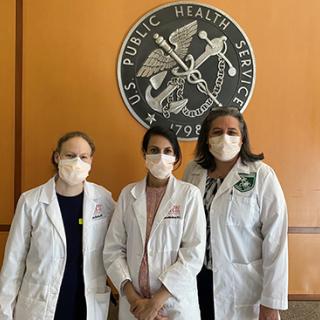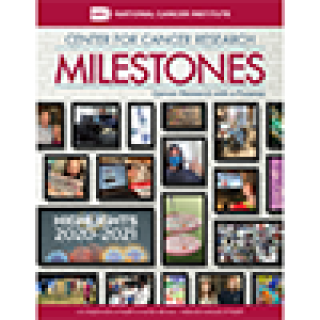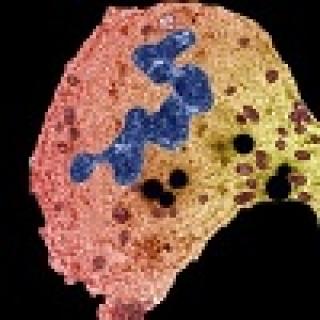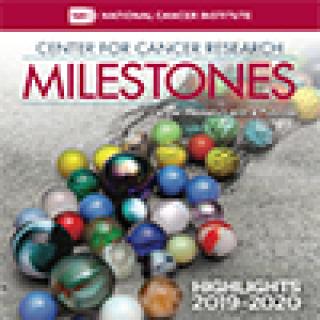In the Spotlight
Celebrating Asian American, Native Hawaiian, and Pacific Islander Heritage Month: A Conversation with Lilian Yang, M.B.A.
Lilian Yang, M.B.A., is the Senior Branch Manager in the Neuro-Oncology Branch (NOB). She is originally from Hawaii and identifies as Chinese American. In this Asian American, Native Hawaiian, and Pacific Islander Heritage Month Q&A, she talks to us about the many places she has lived, some valuable business school advice, and the need for Asian representation in leadership roles.
Read MoreCelebrating AANHPI Heritage Month: A Conversation with Suresh Ambudkar, Ph.D.
Suresh V. Ambudkar, Ph.D., is a Senior Investigator and the Deputy Chief of the Laboratory of Cell Biology. For this Asian American, Native Hawaiian, and Pacific Islander Heritage Month Q&A, he answers some questions about his academic, research and personal journey immigrating from India to the United States.
Read MoreNew Milestones publication now available
Every year, CCR makes remarkable contributions to the understanding, detection, treatment and prevention of cancer. This issue of our annual publication, Milestones, features 14 of our top scientific advances from the past year. These discoveries include basic research to understand cancer cells, promising advances in immunotherapy for solid tumors, precision oncology for selecting the best treatment for a patient and new insights into the role of the tumor microenvironment and the microbiota in cancer treatment. Other major advances include new technology development achieved through interdisciplinary teamwork, health disparities research relating to prostate cancer and studies that led to several Food and Drug Administration approvals.
Read MoreFollowing the fellowship experience with CCR fellow Martha Teke, M.D.
Martha Teke, M.D., is a research fellow in the Surgical Oncology and Cancer Immunotherapy Research Fellowship Program. In this Q&A, she shares her experience as a clinical fellow at CCR and what impact she hopes to leave in the world of science.
Read MoreA conversation with CCR immunotherapy experts
June is Immunotherapy Awareness Month. We asked members of the Surgery Branch about their work with immunotherapy as they continue to make important advances in this growing field.
Read MoreNew Milestones publication now available
Every year, the Center for Cancer Research makes remarkable contributions to the understanding, detection, treatment and prevention of cancer. This issue of our annual publication, Milestones, features some of our top scientific advances in the past year at CCR. These discoveries include two new FDA-approved therapies, insights into how to design RNA-targeted therapeutics and new ways to predict treatment outcomes in immunotherapy. Other major advances include the development of new computational tools – for identifying viruses in cancer genomes and to elucidate the consequences of DNA damage – and novel diagnostic tools – one to detect liver cancer, another to precisely detect prostate cancer.
Read MoreSarcoma Awareness Month
To recognize Sarcoma Awareness Month this July, we are highlighting our researchers who are advancing research discovery in this field. Learn more...
Read MoreA Conversation with Christina Annunziata, M.D., Ph.D.
Christina Annunziata, M.D., Ph.D., is an Investigator in the Women’s Malignancies Branch at the Center for Cancer Research. She has spent most of her career studying the molecular underpinnings of ovarian cancer with the goal of discovering novel treatments. In our Q&A, Dr. Annunziata discusses her personal and professional milestones as well as new directions for her research.
Read MoreA Conversation with Bríd Ryan, Ph.D., M.P.H.
Bríd Ryan, Ph.D., M.P.H., is an NIH Stadtman Investigator in the Laboratory of Human Carcinogenesis at the Center for Cancer Research. Her research focuses on health disparities related to lung cancer across different populations. She discusses her latest research findings and future directions of her work as well as the importance of the supportive CCR environment in this Q&A.
Read MoreNew Milestones publication now available
Every year, the Center for Cancer Research makes remarkable contributions to the understanding, detection, treatment and prevention of cancer. This issue of our annual publication, Milestones, features some of the most impactful science conducted in the past year in CCR. These advances include new insights into how genomes are organized and how DNA and RNA function in cells, how cellular processes and signaling events function in healthy cells and how they are affected in cancer. Other major discoveries this year include how cancers become metastatic and what drives the proliferation of cancer cells.
Read More

